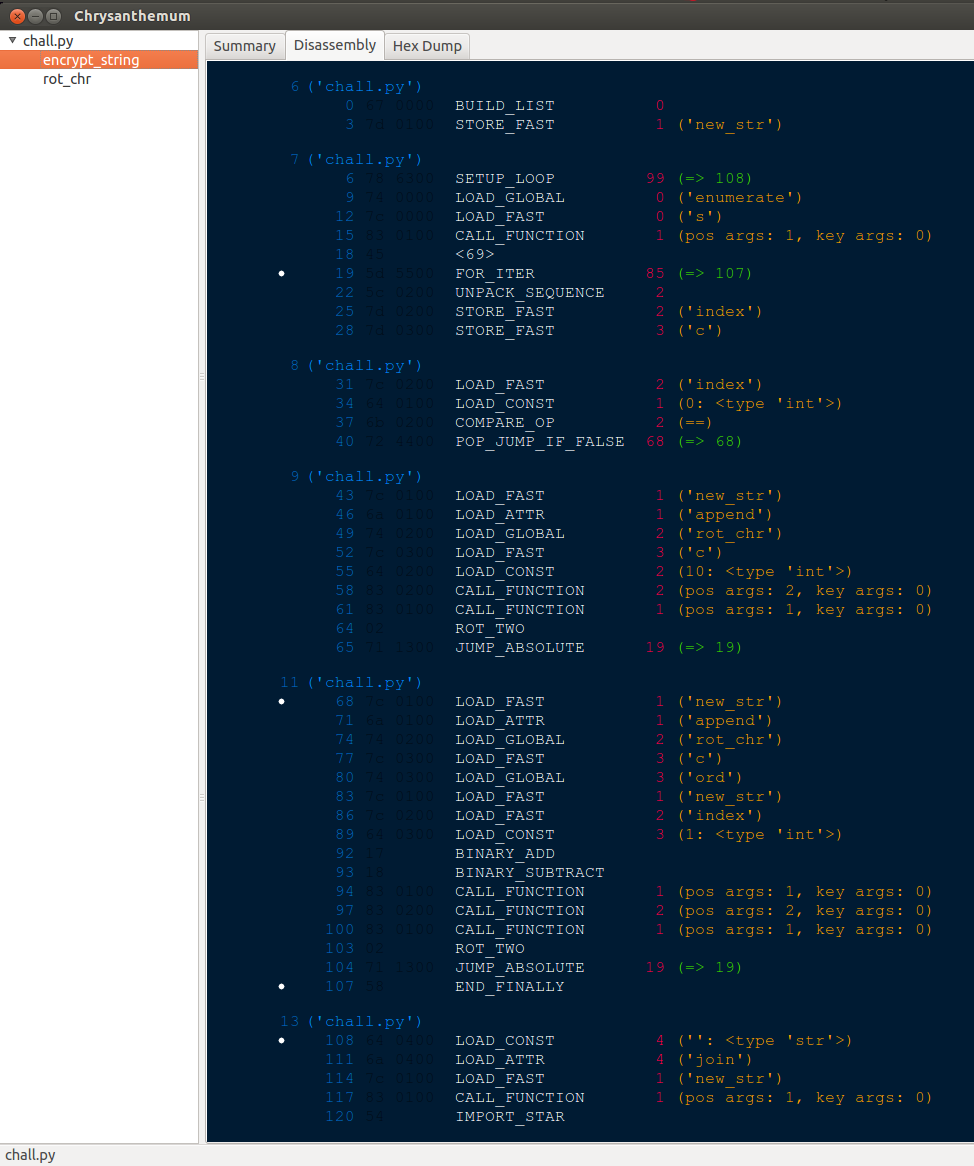We managed to get this package of the robots servers. We managed to determine that it is some kind of compiled bytecode. But something is wrong with it. Our usual analysis failed – so we have to hand this over to you pros. We only know this: The program takes one parameter and it responds with “Yup” if you have found the secret code, with “Nope” else. We expect it should be obvious how to execute it.
The challenge provides a compressed archive hello.tar.gz which contains a bunch of shared objects, an archive called library.zip (actually an ELF executable with an embedded ZIP) and a Python interpreter py. The executable to be cracked is hello, which will reply “Yup” if the correct flag is provided, “Nope” otherwise.
When we extract the ZIP archive we find compiled bytecode files with the .pyc extension, including __main__hello__.pyc, which is the main file loaded by hello. The Python interpreter from which these files were built has been modified, similarly to what is done in the Dropbox client. For this reason, it is not possible to simply demarshal it in order to get insights on how it works. However, after some unsuccesful attempts with Uncompyle2, we were able to look at the bytecode of the file using PyChrisantemum.
Two functions are defined: rot_chr and encrypt_string. The input string is encrypted and then compared with w*0;CNU[\gwPWk}3:PWk"#&:ABu/:Hi,M. The following picture shows the bytecode for the encryption function:
By looking at the bytecode, it is possible to understand and recreate the code for the function:
def encrypt_string(s): new_str = [] for (index, c) in enumerate(s): if index==0: new_str.append(rot_chr(c, 10)) else: new_str.append(rot_chr(c, ord(new_str[index-1]))) return ''.join(new_str)
This is easily reversible and the corresponding decryption is:
def decrypt_string(s): new_str = [] for (index, c) in enumerate(s): if index==0: new_str.append(rot_chr(c, -10)) else: new_str.append(rot_chr(c, -ord(s[index-1]))) return ''.join(new_str)
We can use the provided modified Python interpreter py to import the compiled file and get the rotation function for free. Importing __main__hello__ returns an error if sys.argv is empty, hence we append a random string to fill the list of command line arguments.
import sys
sys.argv.append("useless")
from __main__hello__ import *
The final step is to run decrypt_string and get the flag. The following is the program we used to retrieve the flag:
# Extract all files and then run this with the given ./py
import sys
sys.argv.append("useless") # Avoid error on import
from __main__hello__ import *
# Original function:
#
#def encrypt_string(s):
# new_str = []
# for (index, c) in enumerate(s):
# if index==0:
# new_str.append(rot_chr(c, 10))
# else:
# new_str.append(rot_chr(c, ord(new_str[index-1])))
# return ''.join(new_str)
def decrypt_string(s):
new_str = []
for (index, c) in enumerate(s):
if index==0:
new_str.append(rot_chr(c, -10))
else:
new_str.append(rot_chr(c, -ord(s[index-1])))
return ''.join(new_str)
tobecracked = 'w*0;CNU[\\gwPWk}3:PWk"#&:ABu/:Hi,M'
sol = decrypt_string(tobecracked)
print "solution: " + sol
print "original: " + tobecracked
print "test: " + encrypt_string(sol)
Flag: modified_in7erpreters_are_3vil!!!
(write-up by Andrea Lazzarotto)

